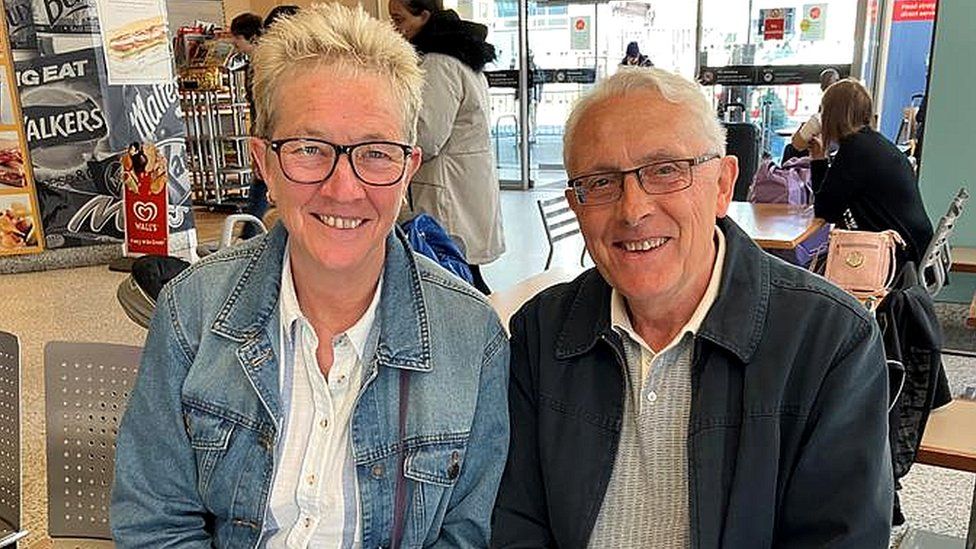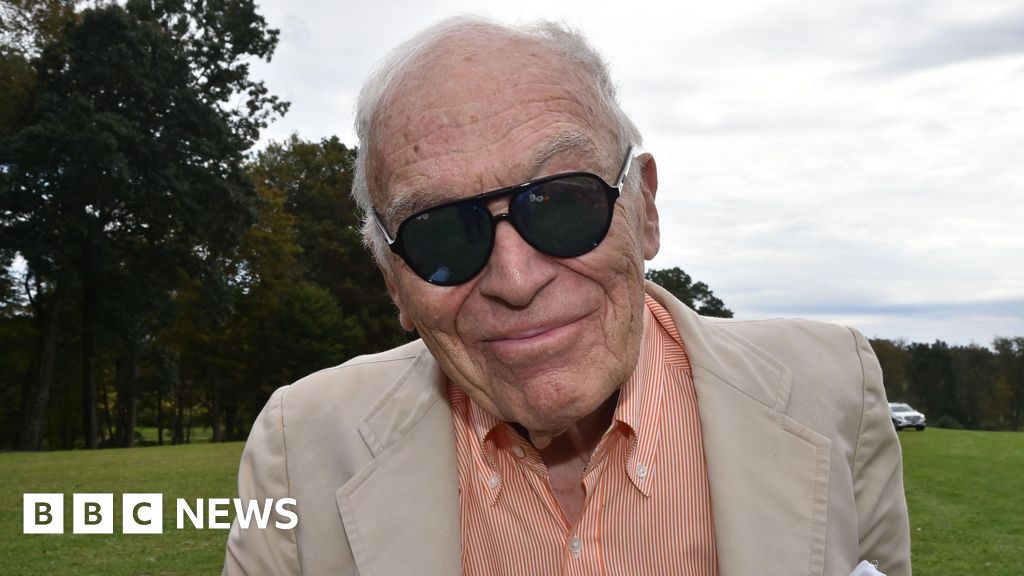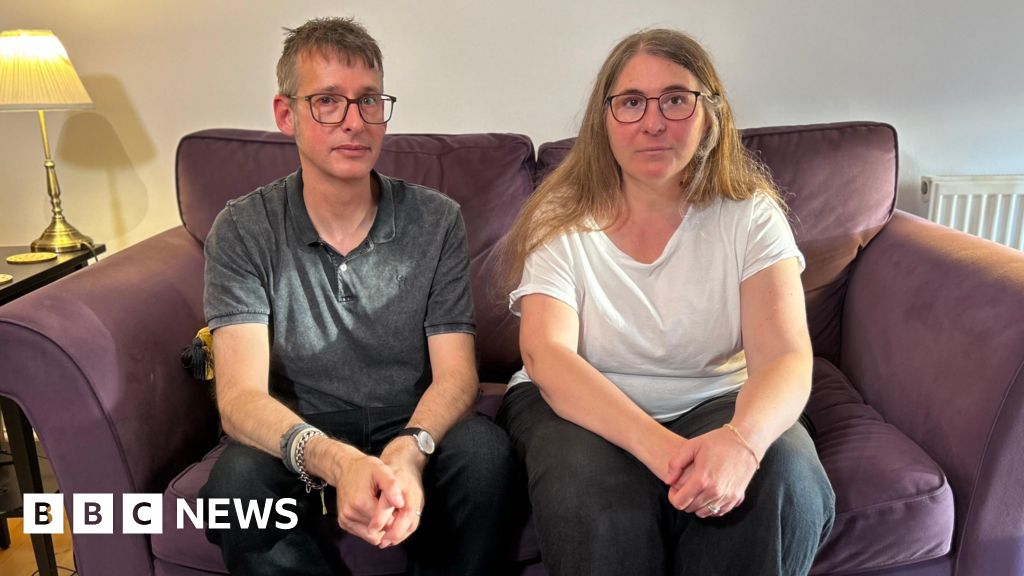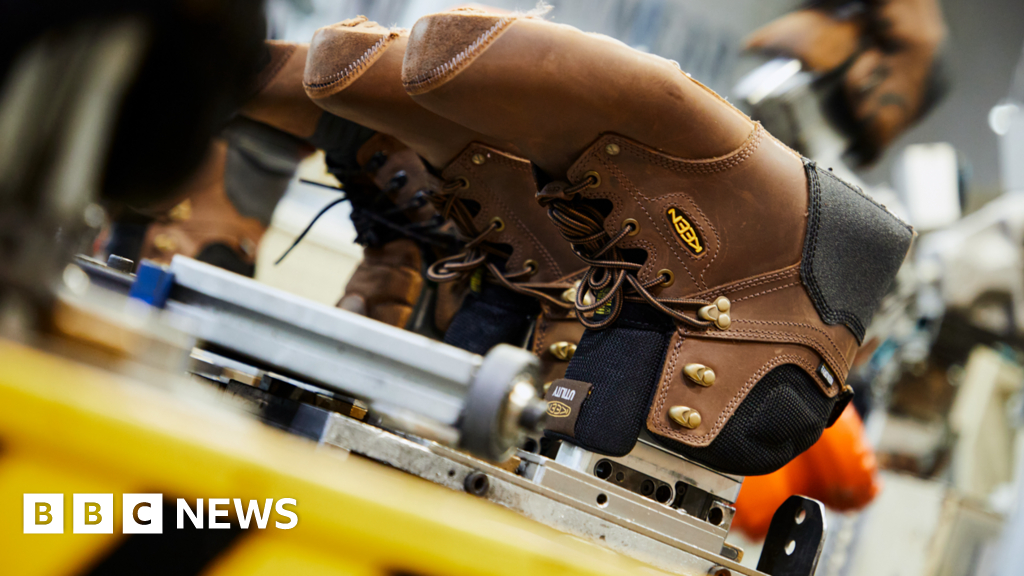ARTICLE AD BOX

Gillian and Stephen Young are travelling by coach to the FA Cup Final
By Dearbail Jordan & Katy Austin
BBC News
Derek, aged 60, has been going to the Epsom Derby for half his life - but this year will be different.
For the first time, the horse-racing fan and his 13 friends will travel by minibus instead of the train.
Because this year, Derby Day falls on the same day as a rail strike.
If all goes well, Derek reckons he'll use a minibus for future trips to Epsom instead of the train: "I do think a lot of people will realise that there are other alternatives."
He's not alone in seeking out other forms of transport.
After walkouts by Aslef train drivers on Wednesday and RMT rail workers on Friday, Saturday will be the third rail strike this week when Aslef drivers once again take industrial action in a long-running dispute over pay and conditions.
And the latest strikes happen to fall on a bumper weekend of sporting events.
As well as the Epsom Derby, there is the FA Cup final at Wembley on Saturday between old foes Manchester City and Manchester United, and the England v Ireland Test match at Lord's.
Meanwhile, for those whose tastes run to the more musical side of things, Beyonce is performing a concert at the Tottenham Hotspur stadium.
Manchester City fans Gillian and Stephen Young are journeying from Manchester to London to see their team attempt to collect the second leg of a historic treble.
By train, the trip usually takes around two hours but because they are having to travel by coach, it will take five hours.
On top of that, the couple are staying overnight near Euston, which is the station they would have arrived at if travelling by train.
"We planned to just walk round the corner," says Gillian. "But now we'll end up at Victoria Coach Station and have to travel back to Euston. It has messed us up a little bit."
'Oh no'
Derek told the BBC that when he first discovered there was a strike on Derby Day his stomach dropped. "I thought, 'Oh no, how are we going to get there? It is going to be chaos.'"
As well as people from the UK, his group includes friends from Australia and Ireland.
"Originally I thought we could maybe get Ubers but then we figured that, with that many people, it works out as really expensive," he says.
He then alighted on the idea of a minibus.
"I was pleasantly surprised that there were minibuses available and that they weren't going to be that much more expensive than going by train."
It works out around £5 more per person to take a minibus, which will provide a driver to take Derek and his group on the hour-long trip between central London and Epsom in Surrey.
He admits that the journey could be slower, but if it is successful, it is likely to be his preferred mode of transport for subsequent Derby Days.
And he thinks that people being forced to find other ways of travelling could end up hurting the rail industry in the long run.
"I think they are shooting themselves in the foot because a lot of people are realising, 'actually I don't really need to use the trains as much as I used to.'"
Whether all people will stick with this weekend's alternative mode of travel in the future isn't completely assured.
'We'll get there'
Gillian and Stephen were also nonplussed when they discovered there was a train strike on the day of the Cup final.
"[We were] not very happy at all because we've never used the coach before so we were a bit unsure how to get to London," says Gillian.
"It had been arranged for quite a number of weeks. We managed to get a refund but that doesn't help the fact that travel has been disrupted."
But they are philosophical. "We'll get there, that's the important thing," she says.
Coach travel has benefitted from the series of rail strikes.
John Boughton, commercial director at National Express, said: "On a normal strike day we'd expect to see at least 80% more passengers travelling on our network than on an equivalent non-strike day.
"That means that on strike days our services are virtually 100% full throughout the entire day."
He said that for National Express's coach services from Manchester "everything is sold out to London all the way through to tomorrow afternoon".
He said that while there are other factors that might help attract more passengers, "we know that rail strikes have a huge impact on the number of people travelling on coach."

 2 years ago
101
2 years ago
101








 English (US) ·
English (US) ·